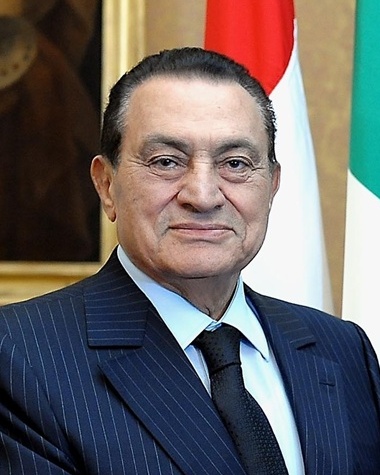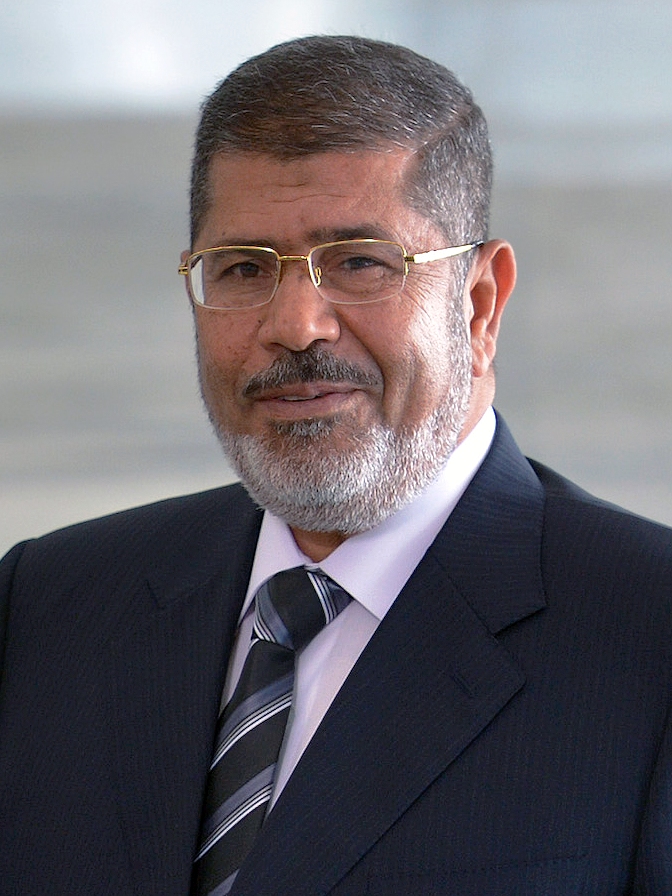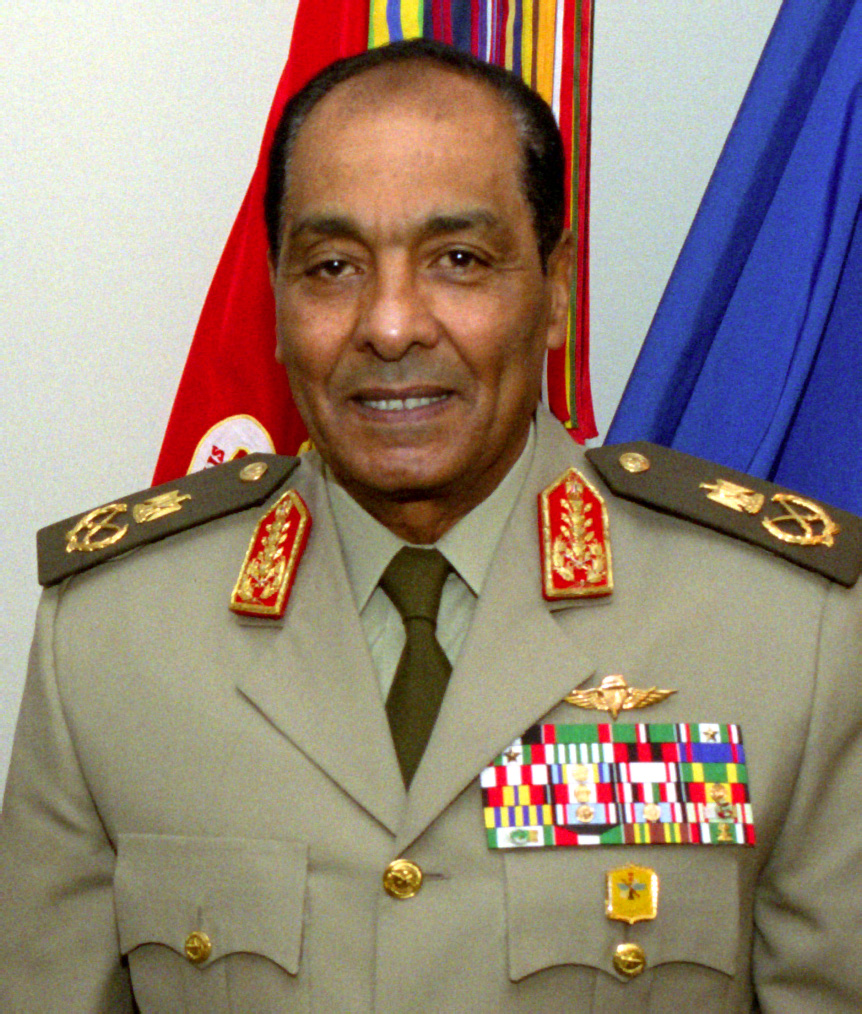|
Egyptian Revolution Of 2011
The 2011 Egyptian revolution, also known as the 25 January revolution ( ar, ثورة ٢٥ يناير; ), began on 25 January 2011 and spread across Egypt. The date was set by various youth groups to coincide with the annual Egyptian "Police holiday" as a statement against increasing police brutality during the last few years of Hosni Mubarak's presidency. It consisted of demonstrations, marches, occupations of plazas, non-violent civil resistance, acts of civil disobedience and strikes. Millions of protesters from a range of socio-economic and religious backgrounds demanded the overthrow of Egyptian President Hosni Mubarak. Violent clashes between security forces and protesters resulted in at least 846 people killed and over 6,000 injured. Protesters retaliated by burning over 90 police stations across the country. The Egyptian protesters' grievances focused on legal and political issues, including police brutality, state-of-emergency laws, lack of political freedom, civi ... [...More Info...] [...Related Items...] OR: [Wikipedia] [Google] [Baidu] |
Egyptian Crisis (2011–2014)
The Egyptian Crisis is a period that started with the Egyptian revolution of 2011 and ended with the installation of a counterrevolutionary regime under the presidency of Abdel Fattah el-Sisi in 2014. It was a tumultuous three years of political and social unrest, characterized by mass protests, a series of popular elections, deadly clashes, and military reinforcement. The events have had a lasting effect on the country's current course, its political system and its society. In 2011, hundreds of thousands of Egyptians took to the streets in an ideologically and socially diverse mass protest movement that ultimately ousted longtime president Hosni Mubarak. A protracted political crisis ensued, with the Supreme Council of the Armed Forces taking control of the country until the 2012 presidential election brought Mohamed Morsi, the former Muslim Brotherhood leader, into power as the first democratically elected President of Egypt. However, ongoing disputes between the Muslim Br ... [...More Info...] [...Related Items...] OR: [Wikipedia] [Google] [Baidu] |
Political Repression
Political repression is the act of a state entity controlling a citizenry by force for political reasons, particularly for the purpose of restricting or preventing the citizenry's ability to take part in the political life of a society, thereby reducing their standing among their fellow citizens. It is often manifested through policies such as human rights violations, surveillance abuse, police brutality, imprisonment, involuntary settlement, stripping of citizen's rights, lustration, and violent action or terror such as the murder, summary executions, torture, forced disappearance, and other extrajudicial punishment of political activists, dissidents, or general population. Political repression can also be reinforced by means outside of written policy, such as by public and private media ownership and by self-censorship within the public. Where political repression is sanctioned and organised by the state, it may constitute state terrorism, genocide, politicide or crim ... [...More Info...] [...Related Items...] OR: [Wikipedia] [Google] [Baidu] |
Civil Resistance
Civil resistance is political action that relies on the use of nonviolent resistance by ordinary people to challenge a particular power, force, policy or regime. Civil resistance operates through appeals to the adversary, pressure and coercion: it can involve systematic attempts to undermine or expose the adversary's sources of power (or pillars of support, such as police, military, clergy, business elite, etc.). Forms of action have included demonstrations, vigils and petitions; strikes, go-slows, boycotts and emigration movements; and sit-ins, occupations, constructive program, and the creation of parallel institutions of government. Some civil resistance movements' motivations for avoiding violence are generally related to context, including a society's values and its experience of war and violence, rather than to any absolute ethical principle. Civil resistance cases can be found throughout history and in many modern struggles, against both tyrannical rulers and democratically ... [...More Info...] [...Related Items...] OR: [Wikipedia] [Google] [Baidu] |
Civil Disobedience
Civil disobedience is the active, professed refusal of a citizen to obey certain laws, demands, orders or commands of a government (or any other authority). By some definitions, civil disobedience has to be nonviolent to be called "civil". Hence, civil disobedience is sometimes equated with peaceful protests or nonviolent resistance. Henry David Thoreau's essay ''Resistance to Civil Government'', published posthumously as '' Civil Disobedience'', popularized the term in the US, although the concept itself has been practiced longer before. It has inspired leaders such as Susan B. Anthony of the U.S. women's suffrage movement in the late 1800s, Saad Zaghloul in the 1910s culminating in Egyptian Revolution of 1919 against British Occupation, and Mahatma Gandhi in 1920s India in their protests for Indian independence against the British Empire. Martin Luther King Jr.'s and James Bevel's peaceful protests during the civil rights movement in the 1960s United States cont ... [...More Info...] [...Related Items...] OR: [Wikipedia] [Google] [Baidu] |
Mohamed Morsi
Mohamed Mohamed Morsi Eissa al-AyyatThe spellings of his first and last names vary. survey of 14 news organizations plus Wikipedia in July 2012 found that 11 used "Mohamed" and four used "Mohammed"; nine used "Morsi", five used "Mursi", and one used "Morsy". The official Egypt State Information Service uses both "Morsi" and "Morsy". (; ar, محمد محمد مرسي عيسى العياط ; 8 August 1951 – 17 June 2019) was an Egyptian politician, engineer and professor who served as the fifth president of Egypt, from 30 June 2012 to 3 July 2013, when |
2012 Egyptian Presidential Election
Presidential elections were held in Egypt in 2012, with the first round on 23 and 24 May 2012 and the second on 16 and 17 June. The 2012 Egyptian Presidential election was the first democratic presidential election of Egypt’s history. The Muslim Brotherhood declared early 18 June 2012, that its candidate, Mohamed Morsi, won Egypt's presidential election, which would be the first victory of an Islamist as head of state in the Arab world. It was the second presidential election in Egypt's history with more than one candidate, following the 2005 election, and the first presidential election after the 2011 Egyptian revolution which ousted president Hosni Mubarak, during the Arab Spring. However, Morsi's presidency was brief and short-lived, and he later faced massive protests for and against his rule, only to be ousted in a military coup in July that year. In the first round, with a voter turnout of 46%, the results were split between five major candidates: Mohamed Morsi (25%) ... [...More Info...] [...Related Items...] OR: [Wikipedia] [Google] [Baidu] |
Al-Ahram Weekly
''Al-Ahram Weekly'' is an English-language weekly broadsheet printed by the Al-Ahram Publishing House in Cairo, Egypt. History and profile ''Al Ahram Weekly'' was established in 1991 by the ''Al-Ahram'' newspaper, which also runs a French-language weekly version, '' Al-Ahram Hebdo''. Between 1991 and 2003, founder Hosni Guindi, served as the editor-in-chief and Hani Shukrallah as managing editor and co-founder Mona Anis as deputy editor-in-chief. After Hosni's death in 2003, Shukrallah succeeded him as acting editor. In 2005 Egypt's Shura Council appointed Assem El-Qersh as the paper's editor-in-chief, replacing Shukrallah. In June 2014, Galal Nassar was appointed editor-in-chief of the weekly. The circulation of the magazine in 2000 was 50,000 copies. See also * List of magazines in Egypt *Sherif Sonbol Sherif Sonbol (born December 6, 1956) is an Egyptian photographer specializing in architecture, scenic fine arts and photojournalism. Early life Sonbol was born in Gi ... [...More Info...] [...Related Items...] OR: [Wikipedia] [Google] [Baidu] |
National Democratic Party (Egypt)
The National Democratic Party ( ar, الحزب الوطني الديمقراطي ''Al-Ḥizb Al-Waṭanī Ad-Dīmūqrāṭī'', often referred to in ar, الحزب الوطني as the ''Al-Ḥizb al-Waṭaniy'', or the "National Party") was the ruling political party in Egypt from 1978 to 2011. The party was founded by President Anwar El Sadat in 1978. The NDP wielded uncontested power in state politics, usually considered a ''de facto'' single party with authoritarian characteristicsJason Brownlee "Authoritarianism in an age of democratization", p. 124 inside an officially multi-party system, from its creation until the resignation of Sadat's successor Hosni Mubarak in response to the Egyptian Revolution of 2011. The National Democratic Party was an authoritarian centrist party. From its inception, it was by far the most powerful of the parties to emerge from the Arab Socialist Union (ASU), the former ruling sole party since 1962 and was as such seen as its organic successo ... [...More Info...] [...Related Items...] OR: [Wikipedia] [Google] [Baidu] |
State Security Investigations Service
The State Security Investigations Service ( arz, مباحث أمن الدولة ) was the highest national internal security authority in Egypt. Estimated to employ 100,000 personnel, the SSI was the main security and intelligence apparatus of Egypt's Ministry of Interior. The SSI focused on monitoring underground networks of radical Islamists and probably planted agents in those organizations and had the role of controlling opposition groups, both armed groups and those engaged in peaceful opposition to the government. It has been described as "detested" and "widely hated". Following the 2011 Egyptian revolution, the head of the SSI was arrested under suspicion of ordering the killings of demonstrators. On March 15, 2011, the Ministry of the Interior announced the dissolution of the agency. The service was replaced by (or renamed) the Egyptian Homeland Security after the 2013 Egyptian coup d'état. History Originally formed during the colonial era in 1913 as the Intelligence ... [...More Info...] [...Related Items...] OR: [Wikipedia] [Google] [Baidu] |
2010 Egyptian Parliamentary Election
Parliamentary elections were held in Egypt in 2010. The first stage was held on 28 November 2010 and the second round was held on 5 December 2010. The election was scheduled in two stages to form the Ninth Assembly since the adoption of the 1971 Constitution. 444 ordinary seats were contested with 64 additional seats reserved for women, while the President appointed 10 members, making a total of 518 seats. Human rights groups said this was the "most fraudulent poll ever" in Egypt's history. It is considered to have been a factor in the Egyptian Revolution that occurred shortly afterwards in early 2011. Background This election follows the Muslim Brotherhood completing the five-year parliamentary term in which it held on as the largest-ever minority bloc. Electoral system The election process will run in the three stages single member plurality, with millions of registered voters in the 222 constituencies. Most of the political parties in Egypt have been advocating for a ... [...More Info...] [...Related Items...] OR: [Wikipedia] [Google] [Baidu] |
Egyptian Constitution Of 1971
The Constitution of the Arab Republic of Egypt was the former constitution of Egypt. It was adopted on 11 September 1971 through a public referendum. It was later amended in 1980, 2005, and 2007. It was proclaimed to update the democratic representative system in assertion of the rule of law, independence of the judiciary, and party plurality. On 13 February 2011, the Constitution was suspended following the resignation of President Hosni Mubarak as a result of the 2011 Egyptian Revolution. On 30 March 2011, it was "effectively voided" after a new provisional constitution was passed by the country's ruling Supreme Council of the Armed Forces."Constitution: Overview" at State Information Service website. Retrieved 25 June 2020. It has since been superseded by the |
Supreme Council Of The Armed Forces
The Supreme Council of the Armed Forces (SCAF; ar, المجلس الأعلى للقوات المسلحة, ', also Higher Council of the Armed Forces) is a statutory body of between 20 and 25 senior Egyptian military officers and is headed by Field Marshal Abdul Fatah al-Sisi and Lieutenant General Mohamed Ahmed Zaki. The council is convened only in cases of war or great internal emergencies. As a consequence of the Egyptian Revolution of 2011, SCAF assumed power to govern Egypt from departing President Hosni Mubarak on 11 February 2011, and relinquished power on 30 June 2012 upon the start of Mohamed Morsi's term as president. The Council has met regularly in times of national emergencies. During the course of the 2011 revolution, the Supreme Council of the Armed Forces met first on 9 February 2011 under the chairmanship of Egyptian president, Hosni Mubarak. The Council met for the first time without the chairmanship of the president on the following day, 10 February, and ... [...More Info...] [...Related Items...] OR: [Wikipedia] [Google] [Baidu] |







.jpg)

